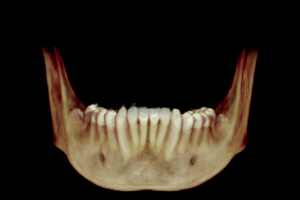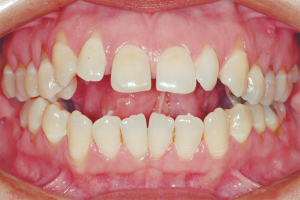RESUMO
Introdução: diversos estudos publicados na literatura brasileira que citam os respiradores não nasais usam o termo “respirador bucal”, outros utilizam o termo “respirador oral”. Existem controvérsias a respeito dos termos que deveriam ser empregados para a citação dos tipos de respiração. Objetivo: esclarecer qual termo citar quando se descreve a respiração não nasal e em qual situação fazer uso dos termos “bucal” ou “oral”. Material e métodos: foi realizada uma busca bibliográfica por meio das bases de dados Lilacs, Scielo e Google Acadêmico, utilizando os seguintes descritores: “respirador bucal” e “respirador oral”, para elucidar qual o termo mais adequado e frequente para nominar o respirador não nasal. Pesquisou-se em livros de clínica médica e semiologia, e bases de informação para caracterizar a nomenclatura adequada, assim como nos Descritores em Ciência da Saúde (DeCS/MeSH). Resultados: foram selecionadas 801 publicações, nas quais 470 empregaram o termo “respirador bucal”, 242 utilizaram o termo “respirador oral” e 89 empregaram os dois termos. Na pesquisa baseada em livros, fica evidente que o termo “respirador oral” é utilizado em descrições anatômicas e que, quando se trata de descrever uma patologia e/ou disfunções, o termo empregado é “respirador bucal”. Na busca na base de dados DeCS/MeSH, não foram encontrados os termos “respirador bucal”, “respirador oral”, bem como “respiração oral”, sendo encontrado apenas o termo “respiração bucal”. Conclusão: diante dos resultados obtidos neste estudo, o termo a ser utilizado para o respirador não nasal é “respirador bucal”.
Palavras-chave – Respiração bucal; Respiração; Obstrução das vias respiratórias; Infecções respiratórias; Sistema respiratório.
ABSTRACT
Introduction: several literature sources that cite non-nasal breathers refer to them as mouth breathers, while others refer to them as oral breathers. There is debate over which words should be used to describe the different forms of breathing. Objective: the purpose of this review is to determine which phrase is used to refer to non-nasal breathing. In what situations might the terms mouth or oral be used? Material and methods: to determine the most acceptable and common term to call the non-nasal respirator, a bibliographic review was conducted through the Lilacs, Scielo, and Google Scholar databases, using the descriptors “mouth breather” and “oral breather”. Information about the suitable nomenclature was found in medical clinics and semiology books, as well as in the Health Science Descriptors database (DeCS/MeSH). Results: a total of 801 articles were selected, of which 470 used the term “mouth breather”, 242 the term “oral breather” and 89 used both terms. In the book-based search, it is evident that the anatomical description refers to the oral cavity and that the references are to “mouth breather” when it comes to pathology and dysfunctions. In the search in the DeCS/MeSH database, the terms “mouth breather”, “oral breather”, as well as “oral breathing” were not found, only the term “mouth breathing” was found. Conclusion: according to the results obtained in this study, the term to be used for the non-nasal breather seems to be “mouth breather”
Key words – Mouth breathing; Breathing; Airway obstruction; Respiratory infections; Respiratory system.






